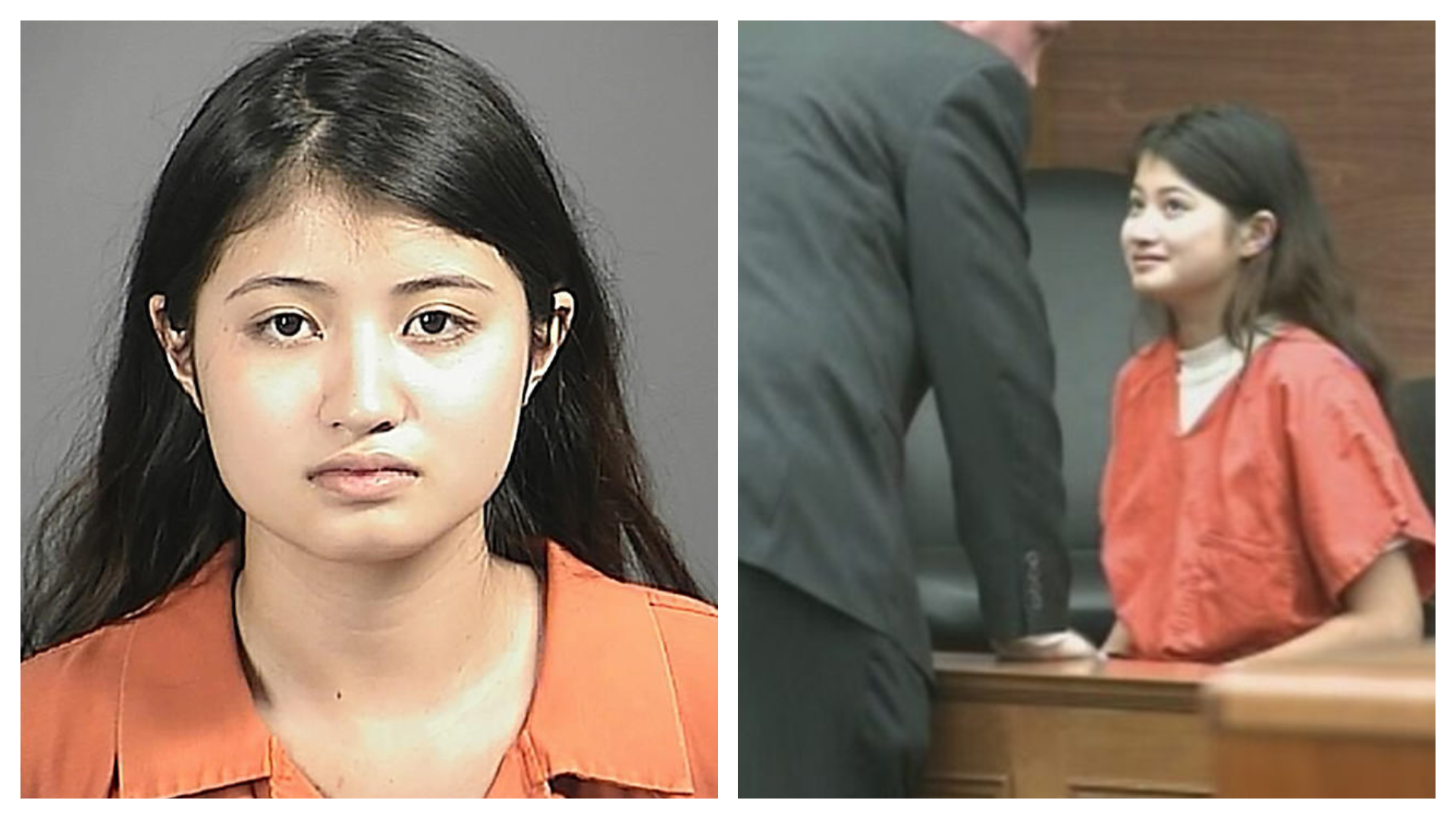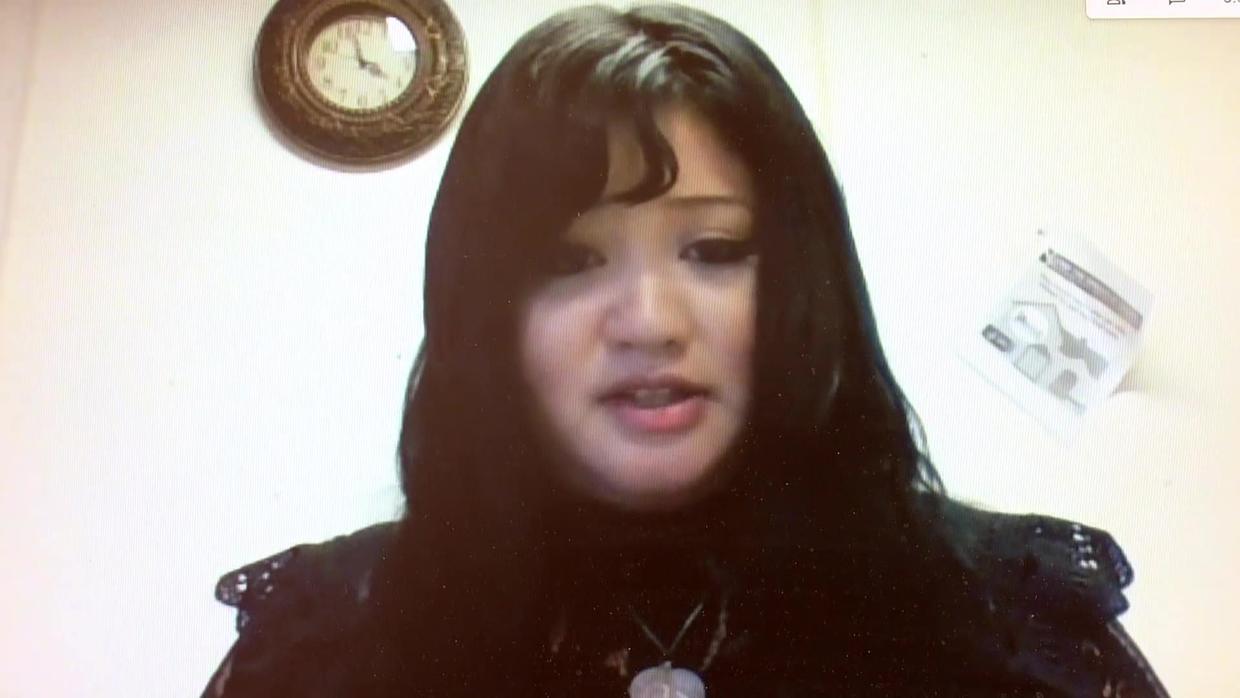Isabella Guzman: Updates On The 2013 Mother's Murder Case & Whereabouts
Can a single act of violence truly define a person, or are there deeper complexities that the headlines often miss? The case of Isabella Guzman, who, at the age of 18, brutally murdered her mother in 2013, forces us to confront the uncomfortable truth that mental illness, childhood trauma, and societal factors can converge in devastating ways.
On a warm summer day in Aurora, Colorado, the tranquility of a family home shattered. Isabella Guzman, then a teenager, committed an act of unimaginable violence, stabbing her mother, Yun Mi Hoy, multiple times. The details of the crime, as reported by authorities, were gruesome: the face, neck, and torso bearing the brunt of the attack. The immediate aftermath saw Isabella fleeing the scene, only to be apprehended the following day in a nearby parking garage. This sequence of events, however, only scratches the surface of a story that would become a national conversation, sparking debate about mental health, the justice system, and the very nature of culpability.
| Attribute | Details |
|---|---|
| Full Name | Isabella Guzman |
| Date of Birth | June 1995 |
| Age (as of 2024) | 29 years old |
| Nationality | American |
| Known For | Stabbing her mother to death in 2013, subsequent legal proceedings, and online notoriety. |
| Incident | Murder of Yun Mi Hoy on August 28, 2013, in Aurora, Colorado |
| Legal Status | Found not guilty by reason of insanity, confined to a mental health facility (Colorado Mental Health Institute) |
| Mental Health Diagnosis | Schizophrenia |
| Current Status | Under confinement at the Colorado Mental Health Institute, with conditional release being considered. |
| Online Presence | Subject of viral videos on TikTok and other social media platforms; subject of documentaries. |
| Reference | 9News Article |
The legal proceedings that followed took an unexpected turn. Isabella Guzman, represented by her legal team, pleaded not guilty by reason of insanity. This plea, if accepted, would shift the focus from punishment to treatment, recognizing that her actions may have been driven by a profound mental disturbance. Prosecutors, after reviewing the evidence, acknowledged the validity of this plea. The judge, after evaluating the results of Guzman's mental evaluation, ruled in her favor, leading to her commitment to the Colorado Mental Health Institute at an undetermined length of time. The trial, which took place in 2013, became a focal point in a complex legal case involving mental health.
In the years that followed, Guzman's story continued to evolve. Diagnosed with schizophrenia, she spent seven years at the mental health institution. During this time, the narrative shifted, and new elements began to surface. Guzman herself has claimed to have suffered abuse from her Jehovah's Witness family. She also claimed to have been sexually assaulted by a hospital employee, deepening the layers of trauma and complexity surrounding her life. These claims, if true, would add a further tragic layer to an already difficult situation.
Guzman's case, however, isn't just confined to courtrooms and psychiatric facilities. In the age of social media, her story has become a viral sensation. Videos of her court hearings have resurfaced on TikTok, sparking renewed interest and debate. She has become known as the "TikTok Killer" and the subject of a documentary, drawing a wide audience. The online attention has fueled different opinions and has put the spotlight back on a case that many thought would never see the light of day again.
The details of the crime and the subsequent legal battles paint a picture of profound suffering. The stabbing, which occurred on August 28, 2013, resulted in the death of her mother. Evidence showed she had stabbed her mother 79 times. In court she was seen staring straight ahead with a knife and showing no emotion. The case is really messy because it involves a lot of complex relationships and events. Despite the gravity of the crime, the legal system recognized the influence of mental illness and responded with a not-guilty-by-reason-of-insanity verdict.
The events leading up to the murder were also complex, involving family conflicts and a history of alleged abuse. Isabella claims to have been abused by her family for many years, and the tension at home escalated after she left the Jehovah's Witness religion at the age of 14. The family dynamic at the time of the murder was also notable: Robert and Yun Mi had divorced when Isabella was very young, and both parents had remarried. On the day of the murder, an argument broke out between Isabella and her mother. In this time of conflict, Isabella sent an email to Yun Mi and threatened her, and said that she would pay for the disagreement.
The case raises important questions about the intersection of mental illness, trauma, and the justice system. How should society deal with individuals whose actions are driven by mental instability? How can we balance the need for accountability with the imperative of providing care and support? The case prompts a wider conversation about the role of the family, the community, and the legal and mental health systems in addressing the complex problems of such cases.
Guzmans situation has led to a lot of discussion of how the system works. In the legal system, the plea of not guilty by reason of insanity acknowledges that Guzman may not have understood the nature of her actions at the time. In this way, the aim of the legal process shifts from punishment to treatment and rehabilitation. The fact that she was sent to a mental health facility for an unspecified amount of time highlights the legal system's acknowledgement of mental healths role in the tragedy.
The media's portrayal of the case has varied. While some outlets have focused on the brutal nature of the crime, others have taken a more nuanced approach, delving into the claims of childhood abuse and mental illness. The case's popularity on social media highlights the public's fascination with true crime stories, especially those with psychological or emotional dimensions. The viral videos and documentaries on the case reveal the public's thirst for understanding the complexities of human behavior.
The claims of past abuse further complicate the case. Isabellas claims against her family and a hospital employee require careful examination. Such claims, if proven, would shed more light on the psychological state of Isabella and the circumstances surrounding the events that led to her actions. Such issues also bring up the wider issues of support and care for people with mental illness, especially the need for proper care in mental health facilities.
Recent developments indicate that Guzman is making steps toward reintegrating into society, as she has secured conditional release from the mental health institution. This news has been met with varied reactions, as people grapple with the difficulty of balancing public safety with rehabilitation. It is important to consider the fact that she has claimed to be restored to health and has apologized for her actions, but still lives in a psychiatric facility.
As of 2024, Isabella Guzman remains under confinement at the Colorado Mental Health Institute. She was born in June 1995, and as of 2025, she will be 30 years old. Her case continues to draw attention, and the public continues to debate the complexities of her case. The case of Isabella Guzman, more than a news story, is a sobering reminder of the many factors that can shape human behavior and the enduring difficulty of understanding, dealing with, and ensuring justice in the face of human tragedy.


